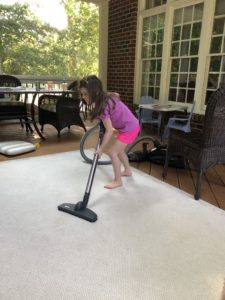Kids need honest, accurate information about COVID-19. But at the same time, parents and adults should try to keep them from being overwhelmed by the nonstop flood of information about the disease and constantly changing discoveries.
Parents should pay close attention to changes in a child’s habits. These changes may signal distress over the unfolding health crisis the virus is causing. Changes may occur in sleeping habits, mood, or diet and may affect relationships with others.
While parents should provide age-appropriate information to children about the pandemic and the illness itself, the main goal is to try not to make kids fearful. Ideally we want to help them develop a respectful view of the virus. We want to teach them ways to help care for themselves and others.
Ways to do this are to make sure that kids don’t get a steady diet of TV and social media. Limit viewing and use of these tools, which is very important for all of us, not just the children. Spend time playing outdoors which is essential for mental and physical health. This can be done while practicing social distancing.
Disruption to our routines is difficult for everyone, especially children. Maintain a routine with children as much as possible. Limit their use of technology. Get them outdoors in fresh air often. Give them chores to do. Chores help kids feel part of a team, with the end goal to ensure that the household survive and flourish during this unusual period of time. Help kids develop better communication skills. Things like phone calls and letter writing can be practiced and cultivated. Teach them how to check in with others and the importance of staying connected to others. Model appropriate social behaviors.
Parents are a child’s first teacher, and at this time, like it or not, they are the primary teachers. As parents we must take that job seriously and give it our best. We have the opportunity to take this unfortunate crisis and turn it into a meaningful family experience that can set the stage for healthier and happier family relationships for the years to come.

